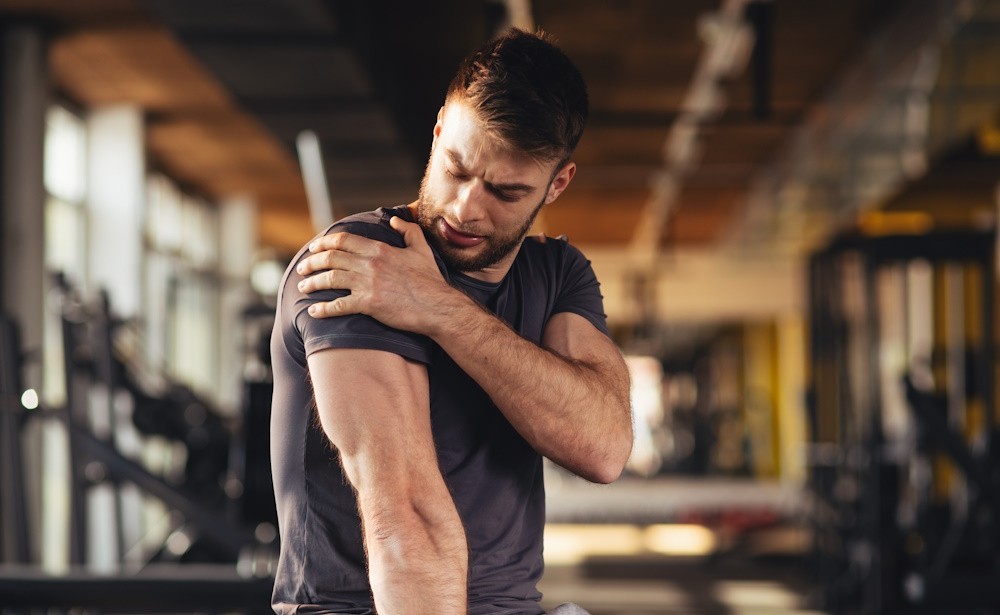Pain, Stiffness, and Other Symptoms That Indicate It’s Time to Schedule Physical Therapy Near You
With baseball season in full swing, players of all ages are hitting the field to take part in America’s pastime. Throwing, sliding, hitting, and sprinting are all part of the game, but unfortunately, the game’s physical demands put players at risk of getting injured, especially in the arm and shoulder areas.
Whether you’re a pitcher, catcher, or fielder, repeated throwing and sudden movements can cause injuries that sideline your season or even affect your long-term mobility. If you’re experiencing pain, stiffness, or weakness in your shoulder or arm, now is the time to start taking your recovery seriously.
Early intervention combined with the right treatment plan can make all the difference in how quickly and safely you return to the game. Let’s explore how providers of physical therapy near you can holistically manage your recovery process.
How Baseball Causes Orthopedic Injuries
Baseball isn’t a high-contact sport like football or rugby, but it comes with a significant risk of orthopedic strain and injury. The repetitive nature of throwing, swinging, sprinting, and sliding places stress on the joints, muscles, and connective tissues throughout the body.
Common injury areas include:
- Shoulders: Overhead throwing, especially by pitchers, can lead to rotator cuff tears, labral injuries, and shoulder impingement. These injuries often develop gradually and increase in severity when left untreated.
- Elbows: Repeated throwing can cause strain or tears in the ulnar collateral ligament (UCL), a condition commonly known as “thrower’s elbow” or “Tommy John injury.” Other elbow problems include tendonitis and nerve compression.
- Ankles: Sudden changes in direction when running bases or fielding can cause sprains or instability in the ankle joint. Poor balance or previous injuries may increase the risk.
- Knees: Sliding, squatting, and pivoting during play put pressure on the knees, making injuries to the meniscus, ligaments, and patellar tendon common among baseball players.
These types of injuries don’t just affect professional athletes. They’re also common in youth baseball and adult rec leagues. Without proper treatment and physical therapy, they can lead to long-term pain and reduced range of motion.
Looking for the best physical therapy near you? Contact Mid-America Orthopedics today to schedule your appointment.
How Physical Therapy In Wichita, KS Supports Recovery
Orthopedic physical therapy treats musculoskeletal conditions and sports injuries by restoring strength, flexibility, and function. When it comes to shoulder and arm injuries, physical therapy has proven highly effective in healing and preventing future injuries in athletes.
Here’s what to expect when you get started.
Personalized Treatment Plans
A licensed physical therapist will evaluate your injury, range of motion, and movement patterns. Based on this assessment, they develop a custom plan that targets your specific problem areas. Treatment may include hands-on techniques, strength-building exercises, and movement retraining.
Holistic Pain Management
Prescription pain medications offer relief, but it’s short-term and comes with unwanted side-effects. Physical therapy focuses on naturally reducing pain, using techniques such as manual therapy, stretching, and joint mobilization. This approach helps avoid over-reliance on medication while promoting long-term healing.
Restored Strength and Flexibility
Many shoulder and elbow injuries cause muscle imbalances or joint stiffness. Physical therapy helps restore balance by strengthening weakened muscles, increasing joint flexibility, and improving overall mobility.
Improved Mechanics
Poor throwing or swinging techniques can cause recurring injuries. Physical therapists help retrain your body to move in safer, more efficient ways that don’t put excessive strain on your joints.
Return-to-Sport Training
One of the main goals of physical therapy is getting you back on the field. Your therapist will include sport-specific movements and functional training to prepare your body for the demands of the game.
When to Seek Physical Therapy Near You
Many athletes have difficulty telling the difference between common aches and pain versus the initial signs of injury. Many baseball-related injuries begin as minor discomforts that players try to ignore. However, those small discomforts can easily turn into larger issues that take longer to heal.
If you’re feeling shoulder tightness, elbow soreness, or general weakness in your throwing arm, now is the time to act. Ask your orthopedic doctor or primary care physician if you’re a candidate. A timely referral to the right person can lead to faster recovery, fewer missed games, and better long-term joint health.
Contact Mid-America Orthopedics for professional physical therapy in Wichita, KS.
How to Choose the Right Physical Therapist
Not all providers deliver the same level of treatment. When dealing with baseball-related injuries, especially to the shoulder or elbow, it’s important to work with a therapist who understands the demands of your sport.
Here’s what to look for when determining the best physical therapy near you.
- Experience treating athletes
- Knowledge of throwing mechanics and shoulder function
- Clear communication and collaborative treatment planning
- One-on-one care and personalized attention
- Access to orthopedic physicians for collaborative care
Take Charge Of Your Recovery With Physical Therapy
Baseball season is meant to be enjoyed, not spent on the sidelines. If you’re dealing with arm or shoulder pain, don’t push through it. Don’t try to tough it out. Doing so can cause a more serious injury that takes even longer to recover from.
Take a proactive approach to your recovery. A smart recovery plan addresses the injury during the earliest stages, as this promotes the most optimal outcome. Recovery plans also include physical therapy to speed up your healing, strengthen your body, and protect your joints for the games ahead.
Take the first step toward your recovery by contacting Mid-America Orthopedics. After one of our experienced physicians examines your injury, they will provide treatment recommendations, including orthopedic physical therapy that supports your athletic goals.

